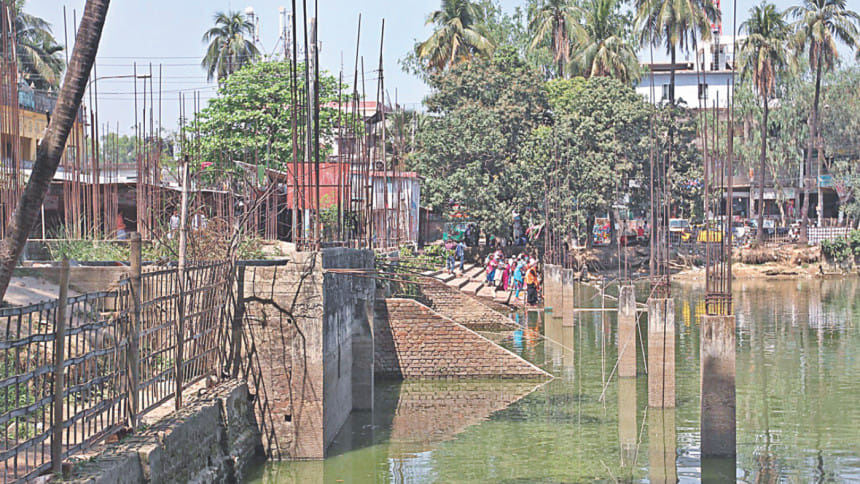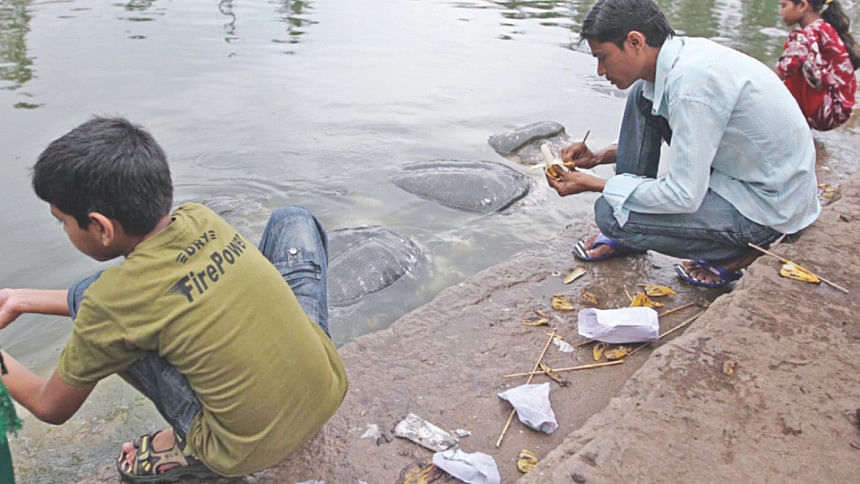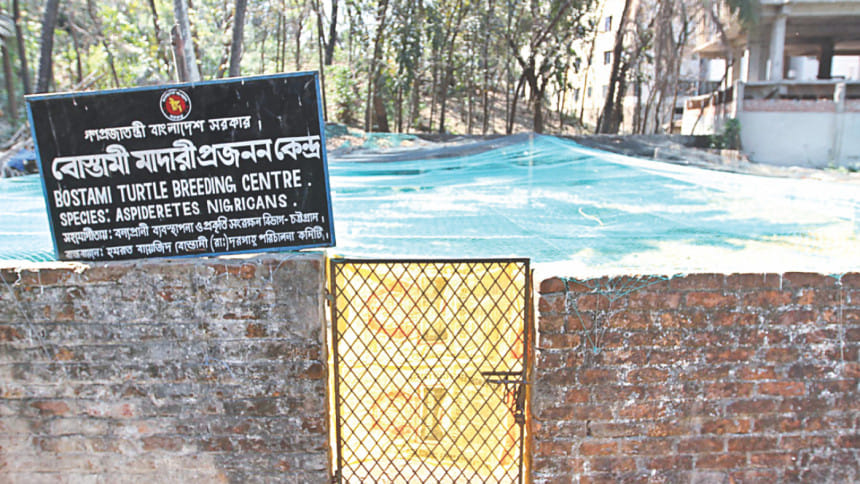Rare Bostami Turtles of Ctg city in peril

Habitat encroachment and water pollution are continuously threatening the existence of Bostami Turtle, which was declared "extinct in the wild" by the International Union for Conservation of Nature 13 years ago. But experts say the ongoing breeding season, from February to May, can be utilised to save the rare species, only available in Bangladesh and India.
A small population of Bostamis is living in the pond of Hazrat Bayezid Bostami's shrine in Chittagong city, and wildlife biologists of the Centre for Advanced Research in Natural Resources and Management found some in the wild of Sylhet in 2012.
Farid Ahsan, a zoology professor of Chittagong University, who studied this black soft-shell turtle, in his 1984 survey, recorded around 320 Bostami turtles in the shrine pond.
In 2004, when the entire waterbody was pumped out after miscreants poisoned the water, 408 turtles were found, said a staff of the wildlife management division in Chittagong. There has been no survey since then. According to the staff, 90 turtles were hatched out in 2007, 74 in 2008, 96 in 2009, 28 in 2010, 45 in 2012, and 40 in 2014.

Some regular visitors see the population declining, but Shah Alam, office secretary of the shrine management committee, claimed that it has rather increased, to 700 now.
In another survey, the CU professor showed the nestling ground where eggs were laid was 13,252 square metres in 1987. Now the turtles breed in an enclosure of 300 square metres before starting to live in the pond measuring 94.60 metres in length and 61.27 metres in width.
In a recent visit, this correspondent saw several concrete pillars erected inside the pond, about 10 feet off the bank, for building a multi-storey mosque, an initiative stayed by the High Court in 2012.
Not only encroachment, unsupervised feeding by visitors is polluting the water. In a 2014 survey, Poribesh Banchao Andolon found that the quantity of dissolved oxygen in the pond water was 2.01mg/L, whereas the congenial level is 5mg/L.

A veterinary surgeon of Chittagong Zoo, Shahadat Hossain, said dirty water may cause serious skin diseases, and most turtles are already having fungal infection. If the water gets further polluted, the animals may die en masse, he warned. The expert put emphasis on changing the pond water annually and strengthening security as the rarity of the species may allure illegal wildlife traders.
In a 1997 study, Prof Farid Ahsan recommended a detailed demographic survey, long-term research and monitoring, introduction of a captive breeding programme in places like Chittagong University campus, Bangladesh Forest Research Institute, Chittagong Zoo, or government land, especially within the cantonment near the Bostami area, analysis on the pond ecology, and study on the association between turtles and fish. He said the turtles do not eat fish but no one has confirmed whether the fish eat baby turtles.
Though the Wildlife Management and Nature Conservation Division, Chittagong supports the breeding programme of Bostami Turtle, Assistant Forest Conservator Kajal Talukder said they have only been directed to annually enlist the numbers of eggs and hatchlings. "So far I know there is no plan to preserve the turtles," he added.

 For all latest news, follow The Daily Star's Google News channel.
For all latest news, follow The Daily Star's Google News channel. 



Comments